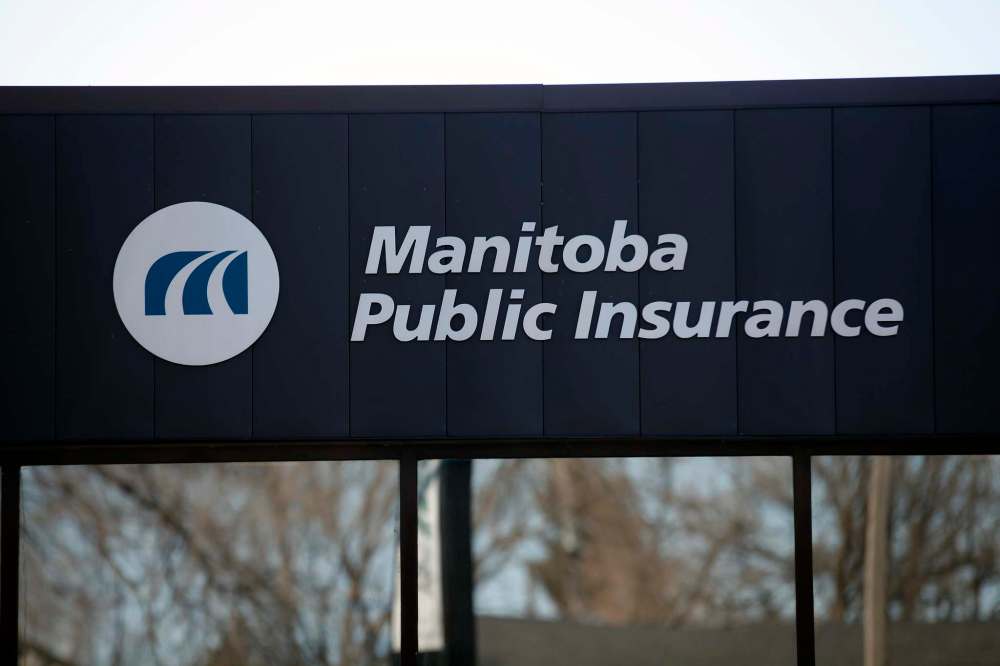Critics worry boosting MPI reserves could drive up rates
Advertisement
Read this article for free:
or
Already have an account? Log in here »
To continue reading, please subscribe:
Monthly Digital Subscription
$0 for the first 4 weeks*
- Enjoy unlimited reading on winnipegfreepress.com
- Read the E-Edition, our digital replica newspaper
- Access News Break, our award-winning app
- Play interactive puzzles
*No charge for 4 weeks then price increases to the regular rate of $19.00 plus GST every four weeks. Offer available to new and qualified returning subscribers only. Cancel any time.
Monthly Digital Subscription
$4.75/week*
- Enjoy unlimited reading on winnipegfreepress.com
- Read the E-Edition, our digital replica newspaper
- Access News Break, our award-winning app
- Play interactive puzzles
*Billed as $19 plus GST every four weeks. Cancel any time.
To continue reading, please subscribe:
Add Free Press access to your Brandon Sun subscription for only an additional
$1 for the first 4 weeks*
*Your next subscription payment will increase by $1.00 and you will be charged $16.99 plus GST for four weeks. After four weeks, your payment will increase to $23.99 plus GST every four weeks.
Read unlimited articles for free today:
or
Already have an account? Log in here »
Hey there, time traveller!
This article was published 01/05/2019 (2418 days ago), so information in it may no longer be current.
The Pallister government’s directive requiring Manitoba Public Insurance to boost its financial reserves could significantly drive up Autopac rates, critics say, but the Crown corporation insists that won’t happen.
Last month, the provincial cabinet set new guidelines for how much money MPI must hold in reserve to protect against unusually high claims.
By some estimates, the new guidelines, based on federal standards for private insurance companies, will force MPI to boost its rate-stabilization reserve for basic insurance to $350 million or more from the $181 million it reported in its 2017 annual report.

The amount of cash the corporation should have on hand to absorb potential shocks from unusually high claims has been an ongoing bone of contention between MPI and consumer representatives at hearings before the Public Utilities Board (PUB).
MPI is expected to file its rate request with the PUB in June for the coming year. In setting auto insurance rates, the PUB takes into account how much the corporation requires in its reserve fund.
NDP Leader Wab Kinew questioned the need for an increase in MPI’s reserve because the corporation enjoys a monopoly and its operations are backstopped by the provincial treasury.
The danger for consumers is that higher reserve requirements will mean higher rates at Autopac renewal time, he said.
“Affordability is the mission for all Crown utilities, including MPI. So if we lose affordability there, we’re not getting the full value of why we as the public own MPI,” Kinew said.
However, Brian Smiley, a spokesman for MPI, said the new reserve guideline will have no effect on customer premiums.
“Any suggestion of (a) rate shock increase (as a result of the change) is completely wrong,” he wrote in an email to the Free Press.
The corporation estimates its reserve requirement under the new guideline would be about $300 million — less than the $350 million claimed by others.
While the province passed a regulation directing the boost in reserves, a mandate letter to the corporation from Crown Services Minister Colleen Mayer on Tuesday encouraged MPI and the PUB to discuss how the reserve target should be met, Smiley noted.
MPI plans to transfer funds from its extension line of insurance to boost reserves for basic compulsory insurance, he said.
Extension insurance involves purchases to reduce one’s deductible or to increase third-party liability coverage. The government also set new guidelines on how much money MPI should keep in reserve for this type of insurance, as well as for MPI’s special risk insurance products.
“There is no risk of rate shock to customers associated with achieving these targets, as transfers from the extension line of business will largely accommodate the need for infusions of capital in basic (insurance),” Smiley said. “Basic reserves would gradually be built up over a five-year timeframe, thereby eliminating the requirement to increase rates sharply.”
Byron Williams, a lawyer for the Manitoba branch of the Consumers Association of Canada, said his client would be especially concerned if MPI were allowed to use income from premiums charged for basic auto insurance to beef up reserves.
If MPI chooses to boost its reserves from the extension line of its business, there won’t necessarily be any direct costs to purchasers of basic insurance, Williams said. “But if MPI seeks to build up its reserves from basic monopoly consumers, then the implications could be material and put significant pressure on rates.”
Meanwhile, Smiley said MPI has already achieved the staffing reductions called for in Mayer’s mandate letter. MPI has reduced its management positions by 28 per cent and its overall staffing by eight per cent.
larry.kusch@freepress.mb.ca

Our newsroom depends on a growing audience of readers to power our journalism. If you are not a paid reader, please consider becoming a subscriber.
Our newsroom depends on its audience of readers to power our journalism. Thank you for your support.


